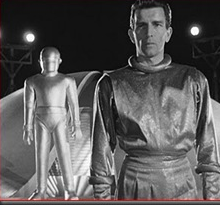 In his seminal book The New Economics, W. Edwards Deming said that the job of a leader is to accomplish transformation of his organization. What does that mean in terms of leadership?
In his seminal book The New Economics, W. Edwards Deming said that the job of a leader is to accomplish transformation of his organization. What does that mean in terms of leadership?
Dr. Domenico Lepore, Founder of Intelligent Management, writes about Leadership.
What is Transformation?
The views, experience, analysis and practice expressed in this blog are the fruit of a systems-based paradigm of organizations and management based on knowledge and transformation. By transformation we mean the relentless effort of organizations to transform themselves into and consistently perform as the most effective vessels to fulfil their role in the world with the highest quality and speed. The umbrella term we use to cover all the various aspects of theory and practice that allow this transformation to take place is Intelligent Management. In order to have Intelligent Management, we need a different kind of manager and leader.
What is Leadership?
Moses was the leader of the Jewish people and so was Mohamed for the Muslims. In much more recent times everyone would agree that Nelson Mandela is a leader, and so was Mahatma Gandhi. In the more mundane world of sport it is undeniable that Michael Jordan has been a leader and so was Pele’. Some organizations “lead” in their field and so do some editorial ventures. In other words, virtually every human endeavour has someone that stands out from the crowd.
If we were to draw a histogram representing the frequency of quotation in management lingo, the word “leadership” would probably have the tallest bar. This is in direct conflict with the relatively few names that come to mind when we think of “leaders”, and it is perplexing to witness how often the noun “leader” is attributed to utterly debatable characters.
We cry out for leadership when it is missing; I will try to clarify what I mean with leadership within the context of Intelligent Management.
Leadership and knowledge
A leader is somebody who has a theory; somebody who “owns” a body of knowledge that backs his claims that they can accomplish a transformation within their span of control. The transformation that Intelligent Management advocates is one of system optimization as a prerequisite for innovation; one in which competition is replaced by cooperation, where performances are managed using appropriate statistical thinking and not assessed deterministically, where teamwork is fostered and not the ranking of individuals.
Knowledge is mandatory but it is not enough. A leader must be able to get their message across; they must be able to address their people in a way that touches their brains but also their hearts. A leader must also have fortitude; they have to “walk the talk” and be an example. A leader has to have the strength that it takes to accomplish something that probably only they have the vision of, and they must be able to clearly communicate that vision. A leader must have an action plan, a step-by-step guidance that people can understand and execute.
These are necessary attributes for a leader, but they are not sufficient.
In the next post we will look at further aspects of Leadership from a systemic point of view.
Extract from the book: Sechel: Logic, Language and Tools to Manage Any Organization as a Network of Projects
See also our series on Systemic Management:
No Fear in the Workplace – Making It Happen
Drive Out Fear by Learning to Think Systemically
Don’t Climb, Grow! Success in the Systemic Organization
Can We Do Away with Hierarchy?
The Network of Projects: Driving Out Fear in the Post-Digital Age
Fear-free Career Paths in the Network of Projects
Learning, Joy, and the Interconnected Future
Structuring the Network of Projects: Algorithms and Emotions
Start Making Sense: Introduction To Statistical Process Control





Leave a Reply